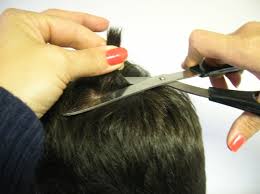Update December 2020: Hair drug testing is still being discussed for Federal Workplace testing and thereafter DOT drug testing. The U.S. Department of Health and Human Services’ Substance Abuse and Mental Health Services Administration has published a final rule and the 60-day public comment period date has expired. So now we see what happens, this author does not expect to see hair testing approved for DOT testing anytime before 2022.
Hair testing for Non-DOT employers and court-ordered testing is alive and well. Learn more about hair testing for drugs.
Original Post – In the Federal Register dated January 19, 2017, Federal Motor Carriers Administration (FMCSA) an application was received from five motor carriers requesting hair testing for pre-employment purposes.
The announcement is requesting comments on this application request. The application request was submitted by J.B. Hunt Transport, Inc. (J.B. Hunt), Schneider National Carriers, Inc. (Schneider), Werner Enterprises, Inc. (Werner), Knight Transportation, Inc. (Knight), Dupre Logistics, Inc. (Dupree), and Maveric Transportation, LLC (Maverick).
The application request from these specific motor carriers is requesting an exemption of pre-employment urine based testing conducted in accordance with 49 CFR part 40 and would allow hair testing for pre-employment purposes only.
The applicants “believe their data ‘‘. . .demonstrates that hair analysis is a more reliable and comprehensive basis for ensuring detection of controlled substance use’’ and the exemption would enable these fleets to discontinue pre-employment urine testing.”
Parties wanting to submit comments on this petition should submit their comments by close of business February 21, 2017.
Comments may be submitted by one of several methods to the “Federal Docket Management System Number FMCSA–2017–0002 by any of the following methods:
• Federal eRulemaking Portal: www.regulations.gov. See the Public Participation and Request for Comments section below for further information.
• Mail: Docket Management Facility, U.S. Department of Transportation, 1200 New Jersey Avenue SE., West Building, Ground Floor, Room W12–140, Washington, DC 20590–0001.
• Hand Delivery or Courier: West Building, Ground Floor, Room W12–140, 1200 New Jersey Avenue SE., between 9 a.m. and 5 p.m. E.T., Monday through Friday, except Federal holidays.
• Fax: 1–202–493–2251.
Each submission must include the Agency name and the docket number for this notice. Note that DOT posts all comments received, without change, to www.regulations.gov, including any personal information included in a comment.”
FMCSA has the authority to grant exemption from certain Motor Carrier Safety Regulations (FMCSRs). These exemptions are required to be published in the Federal Register where the public has an opportunity to review and comment.
The current testing is done in as passed into Public Law through the Omnibus Transportation Employee Testing Act (OTETA) of 1991 (Pub. L. 102–143, Title V, 105 Stat. 952). OTETA requires the Department to follow the HHS Mandatory Guidelines for scientific testing issues.
It is known the hair testing is high up on the agenda of the Department of Health and Human Services (HHS) but as of this date a final HHS Mandatory Guidelines have not been published.
The requesting parties also indicated that the adoption of this request would reduce their financial burden while not reducing the safety aspects related to testing for controlled substances.
The exemption if granted from 49 CFR 382.105 and 382.301 and with specific authorization for release and obtaining the results from hair testing that would comply with 49 CFR 391.23, Investigation and Inquiries.
The parties if this exemption is granted, would share their results as required by 49 CFR 391.23.
All interested parties are urges to make comments on this proposed testing exemption.







